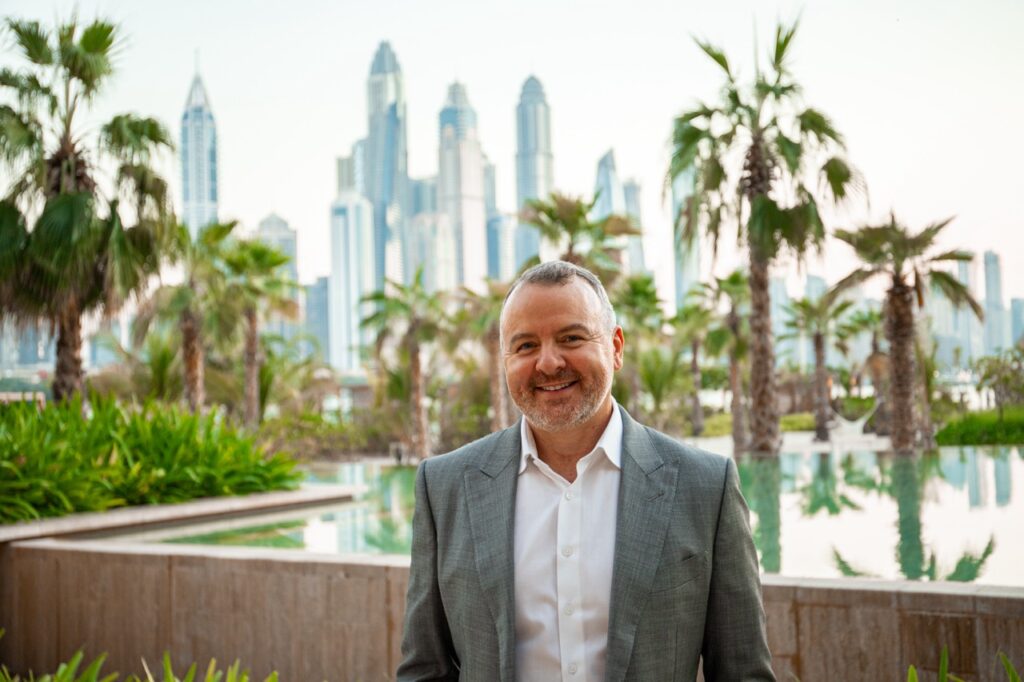By Mark Phoenix, CEO of Sankari
2025 is proving to be a pivotal year for ultra luxury real estate in Dubai where visionary design, wellness integration, and smart living converge to redefine what truly exceptional living spaces mean. The UAE is preparing for exponential wealth expansion. Knight Frank forecasts the number of UHNWIs in the GCC, especially UAE, will increase by over 30% by 2028—supported by strides in luxury infrastructure and pre-emptive regulation.

The core of our philosophy centers on partnerships with leading interior designers who bring bold, bespoke concepts to life. These collaborations are rooted in an understanding that ultra luxury isn’t about excess—it’s a thoughtful orchestration of comfort, exclusivity, and meaning. In projects like the upcoming Regent Residences Sankari Place, we’re taking this ethos to new heights—literally—with twin towers linked by a “sky pool,” private infinity pools for each apartment, and panoramic views of Burj Khalifa and beyond.
While stunning architecture and custom interiors still turn heads, what’s really shifting is the mindset of today’s ultra-luxury buyer. This new wave of global buyers is more selective, driven by values and focused on quality. Dubai, in particular, has become a hotspot—thanks to its unique blend of lifestyle perks, economic opportunity, and international accessibility. Recent figures show that in 2025 alone, the city is expected to welcome around 7,100 new millionaires, bringing with them over $7 billion (Dh26 billion) in capital. That’s nearly half of Dubai’s total foreign direct investment from last year. This kind of influx not only highlights Dubai’s rising appeal but also signals a potential boom for the real estate market. As wealth pours in, demand for high-end properties is likely to surge, setting the stage for rapid growth and unprecedented opportunity in the sector.
This influx has ignited a strategic shift in ultra-luxury development, where real estate transactions are no longer solely financial bets, they are transformative lifestyle decisions. Dubai’s magnetism lies in its zero-persponal income tax, Golden Visa offerings, world-class infrastructure, safety and unparalleled lifestyle with an irresistible mix for global wealth.
Buyers in this tier prioritize privacy, personalization, and provenance. They’re seeking smart homes that offer not only advanced technology but also sensory intelligence lighting that adapts to circadian rhythms and acoustic zoning for mental clarity. They want sustainability that feels luxurious: solar integration, water recycling systems, and materials that are both rare and responsibly sourced.
In Dubai today, wellness isn’t an amenity—it’s an expectation. Reports from sands of wealth states that about 60 percent of buyers now prioritize properties with high‑end fitness and recreational facilities. That means integrated wellness from the kitchen to the concierge desk: bespoke spa suites, cryotherapy chambers, meditation rooms, air‑filtration systems delivered in elegant forms that blend seamlessly with interiors are never clinical. Equally, the spatial choreography of a home on how rooms flow, how light enters, how sound travels matters just as much as the finishes. A beautifully designed space must not only inspire but also restore. It’s no surprise that water-centric elements such as plunge pools, reflective ponds, and floating terraces are increasingly seen as foundational features. They act not just as visual statements, but as calming anchors in a world defined by motion.
Finally, design begins with understanding people: who they are, how they live, and what they need. This human-centric approach is why we focus on advancing construction first, so our residents can occupy and enjoy without long delays. It’s a bold move, but one that reflects our belief: luxury should be experienced first hand, not just marketed.
In any market, the art of luxury design lies in balancing aesthetics, comfort, and purpose. In Dubai’s ultra luxury sector today, that includes wellness sanctuaries, sustainable innovation, and seamless technology. With the city solidifying its position as a global hub for UHNWIs, the demand is no longer just for grandeur. It is for meaning, authenticity, and spaces that elevate every facet of life.

